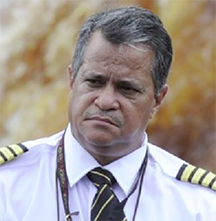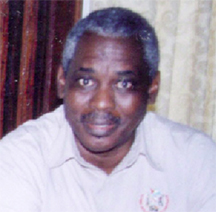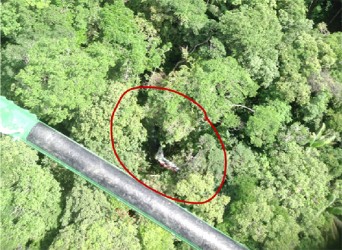Roraima Airways Chief Executive Officer Captain Gerry Gouveia is calling for “the immediate release of official reports into aviation incidents, occurrences and accidents into the public space” as a starting point for divesting the Guyana Civil Aviation Authority (GCAA) of responsibility for conducting such probes.
“My experience in the sector and my knowledge of what obtains abroad tells me that for all sorts of reasons probes into incidents of one sort or another involving aircraft ought to be placed in the public domain,” Gouveia said.
The veteran aircraft pilot continued, “Any professional aviator worth his salt will tell you that two of the key reasons for probing aircraft accidents is to seek to determine what occurred and to ascertain what we might learn from the particular occurrence.”


Asked to comment on a recent pronouncement by Works Minister Robeson Benn about providing greater oversight at the Ogle International Airport in the wake of the recent Trans Guyana fatal crash, Gouveia said he believed the more immediate issue was placing both search and rescue operations and accident investigations into more capable hands. Benn has Cabinet responsibility for the aviation sector.
According to Gouveia, there were no questions as to the competence of local pilots nor the standards to which aircraft were maintained. “We are good as any aviation service anywhere else in the world. The fact is, however, that we are deficient in certain competencies in areas that include search and rescue and accident investigation. Our problems have less to do with accidents happening than with what we do if and when one occurs,” Gouveia said.
Asked why the aviation sector as a whole had not been more sustained in insisting that aircraft accidents be the subject of independent enquiries, Gouveia said that as far as he was aware this was not the first occasion on which the matter had arisen.
Gouveia, who had himself called earlier for an end to the practice of the GCAA conducting investigations into incidents appeared to be questioning the capability of the state-run agency to competently conduct both aviation search and rescue operations as well as post-incident investigations. He alluded to a 1994 aircraft accident which he survived and said that it had been the subject of “a transparent judicial enquiry.”
Meanwhile, Gouveia, who was involved the search and rescue operation following last month’s crash in which the pilot and the cargo handler were killed told Stabroek Business that he believed that the aircraft might have been recovered earlier if the level of search and rescue capability was higher. “I need to be clear in saying that the issue here has nothing to do with whether or not lives would have been saved. The point is that as far as the correct application of procedures, techniques and protocols were concerned everything definitely did not go as smoothly as it might have gone. In my view, while there was a lot of intensity and earnestness applied in the operation, there was a deficiency in practical search and rescue experience,” he said.

He confirmed that the GCAA was responsible for the search and rescue operation.
Asked to propose a framework within which search and rescue can be placed Gouveia said consideration might perhaps be given to placing search and rescue “within the ambit of an expanded Civil Defence Commission (CDC)” since it was already structured to address emergency situations. “In some respects the CDC already has the orientation and some of the emergency tools to deal with emergencies. It will, however, be a question of adding particular kinds of capacity to respond to emergencies of an aviation nature,” he added.





